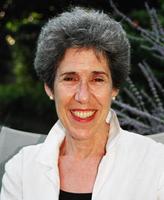Laura Engelstein
Henry S. McNeil Professor of Russian History
 Laura Engelstein, B.A. City College of New York, 1969, Ph.D. Stanford University, 1976: Your contribution was to be the eloquent analyst of Russia’s complicated entry into the modern world. Your first book, Moscow 1905 helped to make sense of the first crisis of the tsarist regime, of the complexities of working class revolt and middle class activism. With The Keys to Happiness you made a fundamental intervention into the ongoing discussion of Russia in the decades before 1917. Sexuality, women, and the state and civil institutions that framed them provided a field that revealed as no one had before how Russian society confronted the challenges of modern society, both inside its borders and as ideas coming from the west. Lawyers, doctors, psychologists, and government officials, liberals and conservatives all tried to make sense of problems that had rested entirely within the sphere of religion until the middle of the nineteenth century.
Laura Engelstein, B.A. City College of New York, 1969, Ph.D. Stanford University, 1976: Your contribution was to be the eloquent analyst of Russia’s complicated entry into the modern world. Your first book, Moscow 1905 helped to make sense of the first crisis of the tsarist regime, of the complexities of working class revolt and middle class activism. With The Keys to Happiness you made a fundamental intervention into the ongoing discussion of Russia in the decades before 1917. Sexuality, women, and the state and civil institutions that framed them provided a field that revealed as no one had before how Russian society confronted the challenges of modern society, both inside its borders and as ideas coming from the west. Lawyers, doctors, psychologists, and government officials, liberals and conservatives all tried to make sense of problems that had rested entirely within the sphere of religion until the middle of the nineteenth century.
Religion led you into the outer fringes of the Russian religious world, to Castration and the Heavenly Kingdom: A Russian Folktale. One of Russia’s smallest and certainly strangest religious sects, the self-castrators under your scrutiny were able to tell their story of religious faith and human suffering in all its depths. With the analytic rigor that has characterized all of your work, you turned in Slavophile Empire the many facets of empire and religion in Russian history as well as to the perennial debates on the course of modern Russian history. Today you are rethinking the Russian Revolution itself, a task you are uniquely equipped to accomplish.
While your writings are central to the understanding of modern Russian history, read in Russia as well as the West, your impact has been as powerful through your undergraduate and graduate students at Princeton and Yale. You have been a tireless and careful mentor to your graduate students, teaching them history but also the standards of professional demeanor and even (when required) professional dress. Your colleagues, young and old, who have never taken a course with you, nevertheless see you as an authority and a court of last resort. We hope that despite retirement you will politely continue to tell us where we are going off the right track, because if you tell us that we are making sense, then we can be sure that we have not failed. Udachi (Oo-dachi) from us all!
Tribute Editor: Penelope Laurans